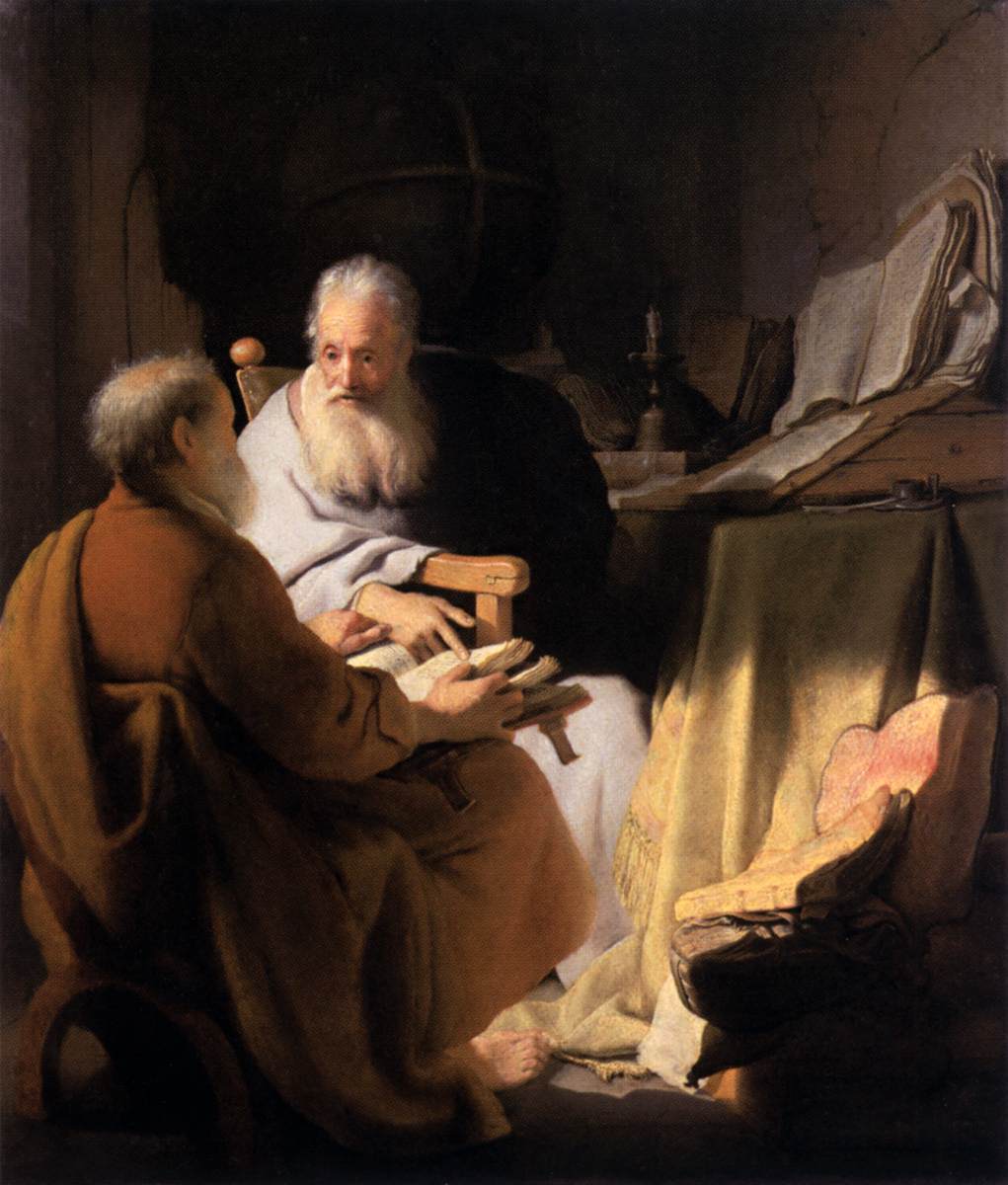* * * *

* * * *
Last Thursday, June 24, was the feast day for the Birth (Nativity) of St. John, the Baptist. Next Tuesday, June 29, is the feast day for remembering St. Peter and St. Paul, Apostles. Turning to the earlier day, John the Baptist was the prophet “who foretold the coming of the Messiah in the person of Jesus, whom he later baptised.” The Bible readings are Isaiah 40:1-11, Psalm 85, Acts 13:14b-26, and Luke 1:57-80. Luke tells how Elizabeth – the cousin of Mary (mother of Jesus) – came to be a mother, and how her husband got struck dumb.
The time came for Elizabeth to give birth, and she bore a son. Her neighbors and relatives heard that the Lord had shown his great mercy to her, and they rejoiced… [T]hey were going to name him Zechariah after his father. But his mother said, “No; he is to be called John.” They said to her, “None of your relatives has this name.” Then they began motioning to his father to find out what name he wanted to give him. He asked for a writing tablet and wrote, “His name is John…”

For more on John see The Nativity of John the Baptist, a post from June 2015. That post includes an image and text about John falling victim to Salome. (Illustrated at left.)
The text from Mark 6, verses 14-29 indicates that “Salome had danced so well for King Herod that he swore he would grant her any request. Her mother, Herodias, who sought revenge on John the Baptist, persuaded Salome to ask for his head.”
On another note, John represents “Law, not Grace. Among men born of woman … he has no superior. But anyone who has been born anew in the kingdom of God has something better than what John symbolizes.” That something better is Jesus, who represents grace. (As in “My grace is all you need.”)
Turning to the other feast day, June 29 is the Feast of Saints Peter and Paul, who “died together.*” It honors “the martyrdom in Rome of the apostles Saint Peter and Saint Paul.” Unfortunately the Bible doesn’t give details about the deaths of Peter or Paul, “or indeed any of the Apostles except for James the son of Zebedee.” (See e.g. Acts 12:2.) But early tradition said that they were martyred at Rome, at the command of the Emperor, and were buried there:
As a Roman citizen, Paul would probably have been beheaded with a sword. It is said of Peter that he was crucified head downward[. And thus as St. Augustine wrote,] “even though they suffered on different days, they were as one. Peter went first, and Paul followed. And so we celebrate this day made holy for us by the apostles’ blood…”
See John the Baptist, Peter and Paul – 2016, which described one of the disputes between Peter and Paul. This one came to a head with the Incident at Antioch. And of that dispute Wikipedia said, “The final outcome of the incident remains uncertain resulting in several Christian views of the Old Covenant to this day.” But briefly, that question involved how much of the Old Testament “law” was to be binding on Christians. (A question – including that of a requirement of male circumcision – which remains “even to this day.”
So to me the main point of the Feast of Peter and Paul – togther – is that it’s okay to have a difference of opinion between Christians. Or even to “squabble” from time to time. And for that matter, that it’s okay to argue with God too, if and as necessary. (As long as you pay the proper respect, you could end up a lot stronger, “spiritually and otherwise.”)
* * * *

* * * *
As indicated in the main text, this post was gleaned from prior posts, The Nativity of John the Baptist (2915), and John the Baptist, Peter and Paul – 2016.
The upper image is courtesy of the link – Benedictus (Song of Zechariah) – in the Wikipedia article, Nativity of St. John the Baptist. The caption: “Detail of Zechariah writing down the name of his son (Domenico Ghirlandaio, 15th century, Tornabuoni Chapel, Italy).”
Re: “My grace is all you need.” 2 Corinthians 12:9. For more on Peter and Paul, including the movement of their “remains,” see Peter, Paul – and other “relics.”
Re: Peter and Paul, who “died together.” See On Peter, Paul – and other “relics:”
On 29 June we commemorate the martyrdoms of both apostles. The date is the anniversary of a day around 258, under the Valerian Persecution, when what were believed to be the remains of the two apostles were both moved temporarily to prevent them from falling into the hands of the persecutors.
In other words, the June 29 feast day is an ancient celebration, as “the anniversary either of their death or of the translation of their relics.” Note too that the “Valerian Persecution” mentioned, of 258, involved the movement of the remains of Peter and Paul – the “relics” – not the date of their deaths. (They would have to have been over 200 years old.)
Re: Arguing with God. See the post, On arguing with God, which said that maybe – just maybe – we are supposed to “argue with God,” or “wrestle with God,” or even “wrestle with the idea of God.” Maybe, just maybe, that’s how we get spiritually stronger, by “resistance training” rather than passively accepting anything and everything in the Bible, without question or questioning.
The lower image is courtesy of Two Scholars Disputing by REMBRANDT Harmenszoon … (web gallery of art.) The explanatory section added that the most likely explanation of the painting is that it “represents St Peter and St Paul in conversation,” or even Argument:
Rembrandt omits the attributes by which the two apostles were traditionally identified, he relies only on their physical characteristics … and on what they are seen to be doing, that is earnestly discussing a text which the one (St Peter) is explaining to the other.
For other interpretations and/or images, see also canvasreplicas.com/Rembrandt, and Two Scholars Disputing by REMBRANDT Harmenszoon van Rijn.
* * * *
For more on the blog and its main themes, see the notes to Pink Floyd – and Pentecost Sunday, 2021.
* * * *